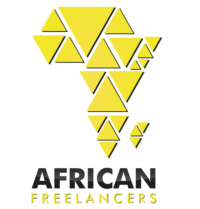Personal branding is the intentional process of defining and showcasing your professional identity to stand out in a competitive market. It involves curating how clients and peers perceive you, from your skills and expertise to your values and work ethic. Unlike corporate branding, personal branding focuses on you—your unique qualities and how they align with the needs of your target clients.
For freelancers, especially in Africa, where the global market may hold certain stereotypes or misconceptions, personal branding is an opportunity to control the narrative. It helps you position yourself not just as another service provider but as a trusted expert in your field. When done effectively, personal branding makes you memorable. It allows clients to instantly recognize your value and feel confident in hiring you. Think of it as your personal “signature” in the freelance world.
Why Personal Branding Matters for African Freelancers
Building a strong personal brand is crucial for African freelancers for several reasons:
1. Overcoming Geographical Barriers
Despite the growing acceptance of remote work, some international clients may hesitate to work with freelancers from less-known regions due to concerns about communication, time zones, or cultural differences. A well-defined personal brand can address these biases by highlighting your professionalism, reliability, and the quality of your work.
2. Standing Out in a Crowded Market
3. Building Trust and Credibility
Trust is a cornerstone of any business relationship. For African freelancers, this can mean showcasing testimonials, certifications, or project samples to reinforce your capabilities. Personal branding creates a consistent narrative that reassures potential clients of your expertise and reliability.
4. Expanding Beyond Local Markets
A personal brand can elevate you from a local player to a global contender. It allows you to connect with clients who value your work irrespective of your location, opening doors to higher-paying opportunities and niche markets.
5. Creating Long-Term Opportunities
A strong personal brand doesn’t just help you land projects—it builds a reputation that attracts repeat business and referrals. Over time, this means more stability and the ability to charge premium rates for your services.
Steps to Build Your Personal Brand in 2025
Building a strong personal brand doesn’t happen overnight, but with consistent effort and clear strategies, you can position yourself as a top freelancer. Here are practical steps to guide you:
1. Audit Your Current Brand
Before you can create an impactful personal brand, it’s essential to assess where you currently stand. Start by Googling your name or professional alias to see what potential clients might find. Evaluate your profiles on social media, freelance platforms, and your personal website (if you have one). Are they consistent in tone, visuals, and messaging?
Then, look through your portfolio or sample work. Does it reflect your best skills and the niche you want to be known for? If your portfolio feels outdated or lacks focus, consider curating or refreshing it with recent projects that align with your brand identity. Note areas where you’re falling short. Do you lack a cohesive bio across platforms? Are your testimonials missing key client details? These gaps will guide your action plan for improvement.
2. Define Your Brand Goals for the Year
To effectively build your personal brand, you need clear, measurable objectives. Ask yourself the right questions vis:
– What kind of clients do I want to attract in 2025?
– Do I want to expand into international markets?
– Am I looking to transition to a higher-paying niche?
You should also set specific personal branding goals, such as increasing visibility by growing your LinkedIn followers or website traffic, establishing thought leadership by writing blog posts or sharing insights in your niche, and building credibility through testimonials, certifications, or partnerships.
3. Develop an Online Presence
Your online presence is the foundation of your personal brand. It’s often the first point of contact between you and potential clients. The first step is to create a website or a portfolio. A website is your digital home base. Use it to showcase your work, highlight client testimonials, and provide a clear way for clients to contact you. Ensure it reflects your personal brand with a clean design, professional photos, and consistent branding elements (colors, fonts, etc.).
Additionally, optimize your social media profiles. Each platform should reflect your professional identity. Building a personal brand requires that you post online consistently. A dormant profile can harm your brand. Develop a content calendar to post updates, tips, or portfolio highlights regularly. Tools like Buffer or Hootsuite can help streamline this process.

4. Leverage Networking Opportunities
Personal branding isn’t just about what you say about yourself—it’s also about the relationships you build. Networking is all about communities. Platforms like Facebook groups, Reddit, or local WhatsApp groups can connect you with like-minded freelancers. Being part of such groups helps you learn, share resources, and even find clients. You can also join the African Freelancers community of like-minded freelancers here.
Also participate in industry-specific groups on LinkedIn and attend webinars or virtual summits. These interactions allow you to build connections, share expertise, and gain visibility in your niche. Alternatively, you could partner with other freelancers or small businesses on projects. These collaborations expand your network and give you opportunities to showcase your skills to a broader audience.
5. Learn and Evolve
Your personal brand should reflect growth and adaptability. Clients want to work with freelancers who stay ahead of the curve. Take courses or earn certifications to stay competitive in your niche. Platforms like Coursera, Udemy, and LinkedIn Learning offer affordable options. For African freelancers on a budget, explore free resources like YouTube tutorials or government-sponsored training programs.
Follow blogs, podcasts, and thought leaders in your industry to stay informed about emerging trends and tools. Sharing this knowledge through your content can position you as an expert. Lastly, it is important that you regularly evaluate your efforts. Are you meeting your branding goals? Adjust your strategies as needed to ensure continuous growth and improvement.
Final Thoughts
As we’ve explored in this guide, personal branding isn’t just about showcasing your skills—it’s about crafting a narrative that aligns with your values, goals, and the needs of your target clients. Remember, personal branding is a journey, not a destination. As you grow and adapt, so will your brand.
Here’s the key takeaway: Don’t try to do everything at once. Start small, stay consistent, and make 2025 the year your freelance career flourishes. Check out our other articles on how to make your freelancing career a success this year.
Olajumoke Okunade
Olajumoke is an expert content writer with years of experience delivering content that converts






